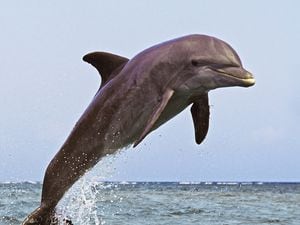Leading Generation Z
Major General Paul Nanson, commandant of the Royal Military Academy Sandhurst, set out what he thinks modern leadership means when he spoke to Will Green

‘THE most often asked question, I’m surprised you haven’t asked me: is this generation of young people as good as generations that have been before?’ said the major general, who also commands the British Army’s recruitment and initial training.
‘Of course, it’s always very easy for people to say: “No of course they are not. It was tougher in my day” – which is complete rubbish. This generation is every bit as talented as generations that have gone before. But they’re different.
‘And you’ve got to understand that Generation Z, which is the young soldiers coming through now, are born in a digital age. They take in information in a different way. They’re better connected than we ever were.
‘They have different hopes and different fears – and therefore the way we lead them has to change.
‘If you’re going to get the best out of them you have to know that your leadership has to change.
‘So from that point of view it’s not deference, I just think it’s changing your style to match the changing nature of the follower.’
A key piece of work was around ‘trans-generational’ leadership, added the senior officer, whose service over three decades has also taken him to Northern Ireland, Iraq and Afghanistan on active duty.
However, the key qualities of leadership endured.
‘It’s courage. We have six values in the Army, in which I consider courage to be pre-eminent.
‘The reason being that it takes physical courage to be a good leader. But it also takes as importantly moral courage to be able to make the right decision on a bad day. So that’s the first thing.
‘I think the second one is competence in your role. And I think competence comes from training, which we do quite well in the Army.
‘But also education and experience. I think those three things add up to wisdom, which give you the competence.
‘Then the third one, which is the most important thing about leadership, is character. Your character. Who you are. And I think ultimately people follow you because they believe in you as a person. And that’s character.’
The major general, who was recently in Guernsey for a conference organised by the Leaders consultancy, said people were not born leaders but had leadership potential and that could be developed.
‘For youngsters coming to Sandhurst we select them based on their leadership potential, which is unusual. Most organisations would select on competence.
‘We select on leadership potential.
‘Then we develop that potential and turn them into leaders over the course of 44 weeks at Sandhurst.’
The leadership journey of development never stopped, he added.
There was a rank structure in the Army along with an element of command and control due to the ‘intense’ environments that it operated in. But the officer added: ‘You’d be a very foolish leader who didn’t listen to his people, who didn’t consult, who didn’t appreciate those under him providing him or her with advice.
‘I think in this day and age we are more conscious of unlocking the potential of the team.
‘Why wouldn’t you use all knowledge contained in your team?
‘So, I think we are far more agile than perhaps people give us credit for.’





